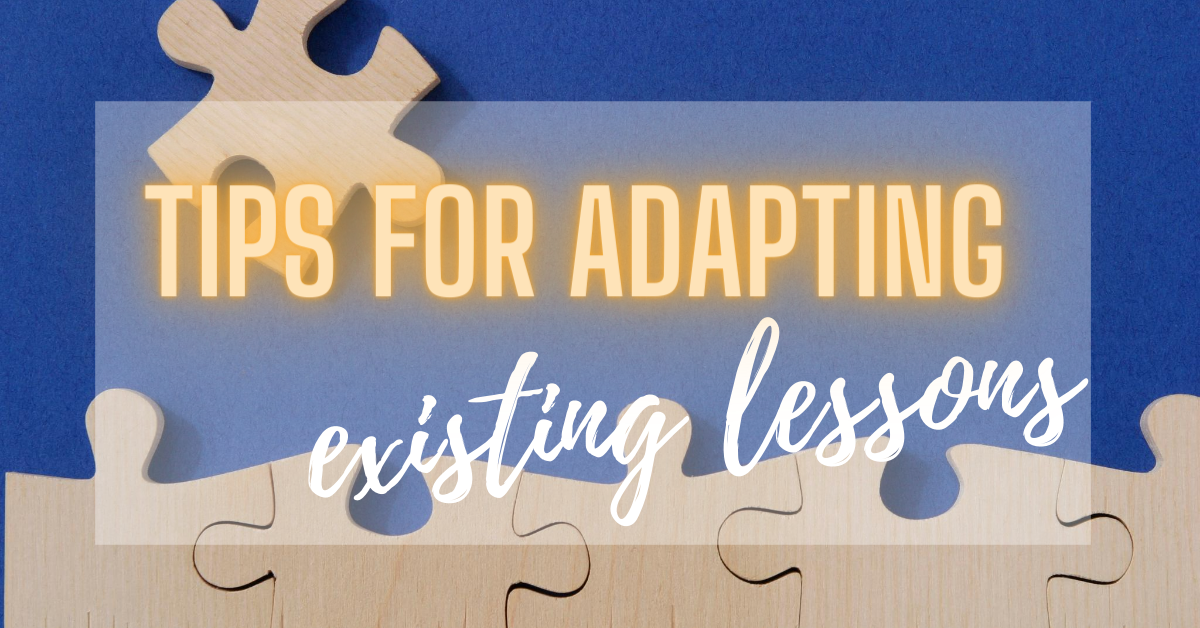A squirt gun would never be mistaken for a real gun, right? Dive into the thought-provoking world of Water. Gun. Argument and challenge what we choose to believe. A thought provoking and powerful piece in a docu-theatre style.
Tips for Adapting Existing Lessons
How do you adapt existing lessons to a virtual environment? The goal is to adapt without reinventing the wheel, which is an added unnecessary stress. Some lesson plan elements will remain the same and others will need adaptation. Here are five things to consider:
1. Keep the general structure of a traditional classroom lesson.
If you started every class with a journal prompt and ended every class with an exit slip, keep that structure. If you started every class with a check-in (How are you feeling?) and ended every class with a check-out (What did you learn today?), this is a routine that students are used to. Keep the routine because it tells students that you consider virtual lessons as important as traditional lessons. You may have to adapt the way you present elements. For example, students will not be able to take a hard copy of an exit slip and hand it in as they exit class, but you can have students keep a journal document and submit it every few weeks.
2. Focus on interactive instruction.
Students will focus and listen differently in a virtual environment. They are more distracted. Sometimes it’s for a good reason and sometimes they’re texting. The biggest change in your lesson will be your method of instruction. It won’t be enough to present instructions, ask the class if they have any questions, and expect execution. It will be much harder to read the room and measure student engagement. Consider interactive instruction. Ask individual students by name to state their next task. Ask individual students to recall a point of information. Don’t assume students understand an assignment because they don’t ask questions.
3. Remove the pacing expectations of a traditional classroom lesson.
Everything takes longer in a virtual environment. You also may have less time with your students. A unit that takes one week in a traditional classroom may take twice as long online. As you work through virtual tasks, don’t get frustrated because it’s not working the same way it did in your classroom. Remove pacing expectations.
4. Adapt class discussions.
If you love having class discussions with students, be aware that you may have to change how you prompt those discussions in a virtual environment. From behind a screen, it’s easier for students to simply not respond. You may need to direct discussion questions to individual students. Call them by name and ask for their response.
5. Create a vocabulary of online tasks.
You probably establish a working task vocabulary in your traditional classroom. For example, if you say “audience seating,” students know to sit on the floor in lines simulating an audience. Giving your virtual classroom a vocabulary of tasks not only helps with routine, it equates virtual work with traditional classroom work. The terms and their definitions are up to you. Teach and practice the execution of whichever terms you choose. Examples:
- Recall: Students recall a point from a section of information you’ve just given.
- Check-In: Students recall their next task.
- Respond: Students give their opinion on a topic.
- Brain break: Stand and stretch for one minute.
Related Articles
Create Your Own Choice Board: Drama Activities
by Lindsay Price
Choice boards give students the opportunity to choose how they want to learn a particular subject. Create Your Own Choice Boards: Drama Activities can help encourage your students' independence by allowing them to take an active role in their learning.
Distance Learning
by Christian Kiley
A play about trying to survive and thrive in a virtual classroom.

